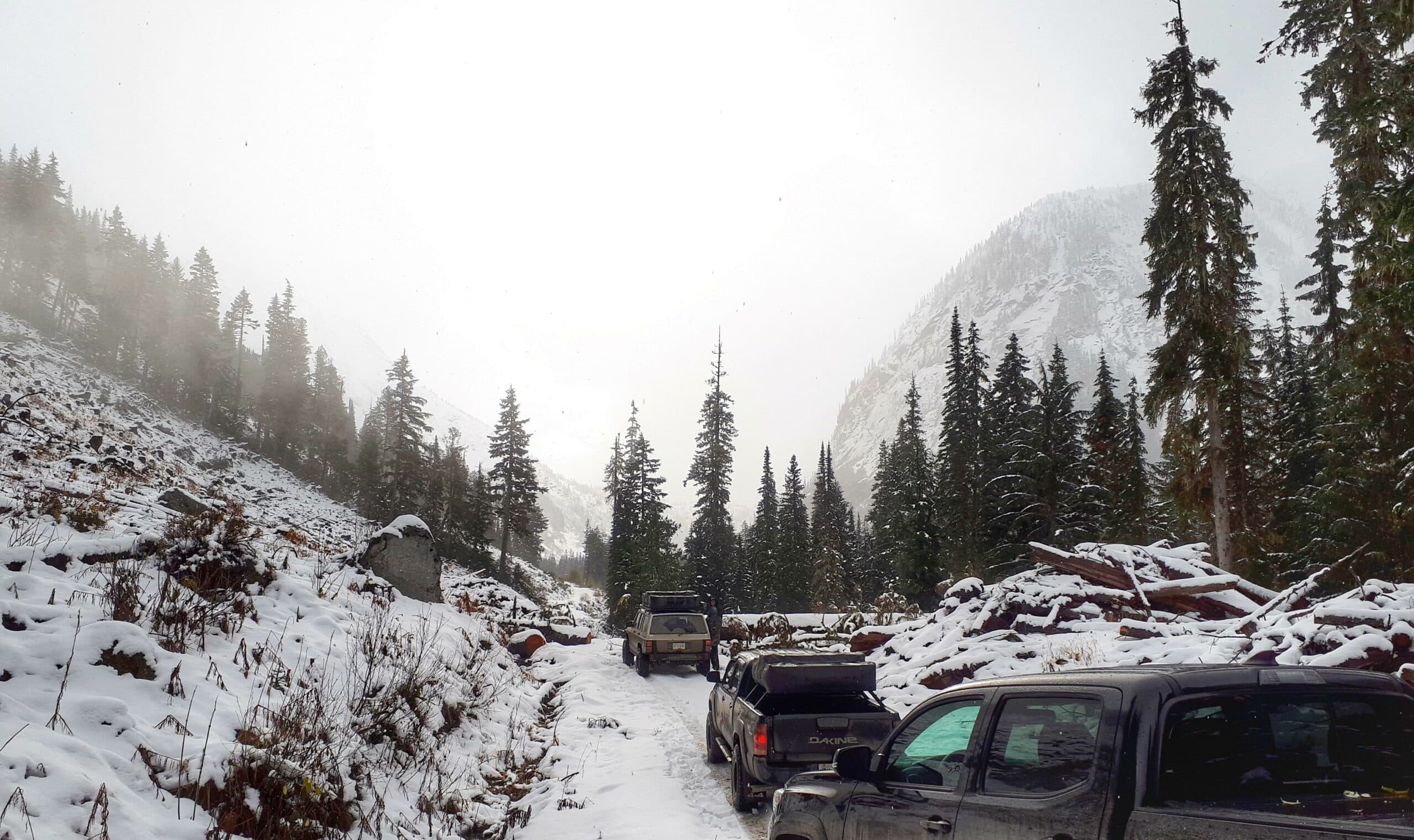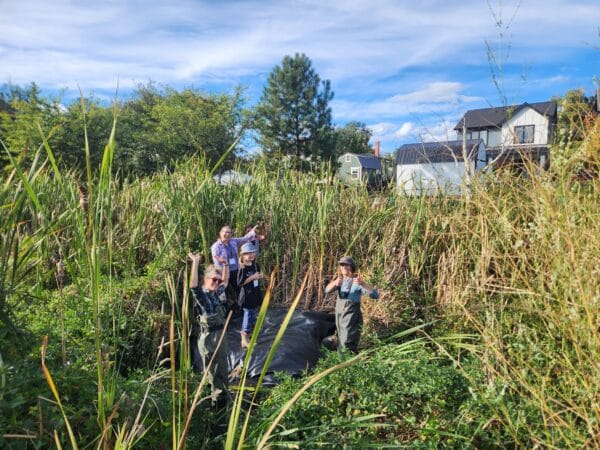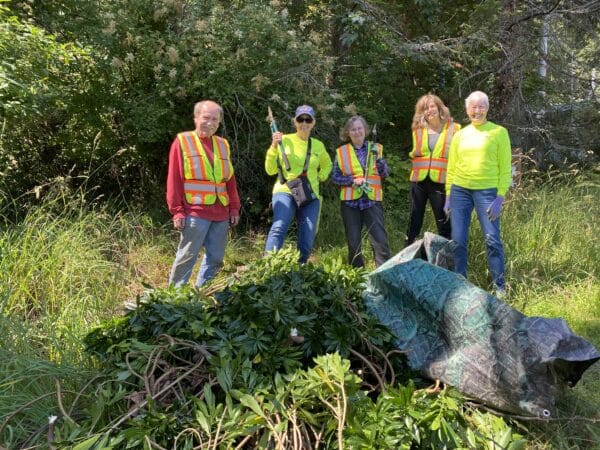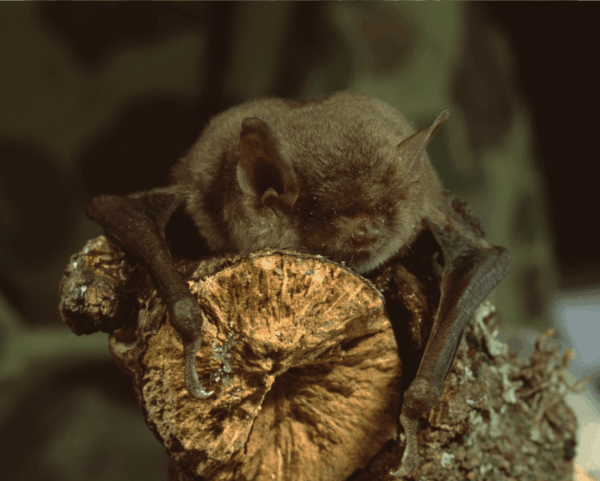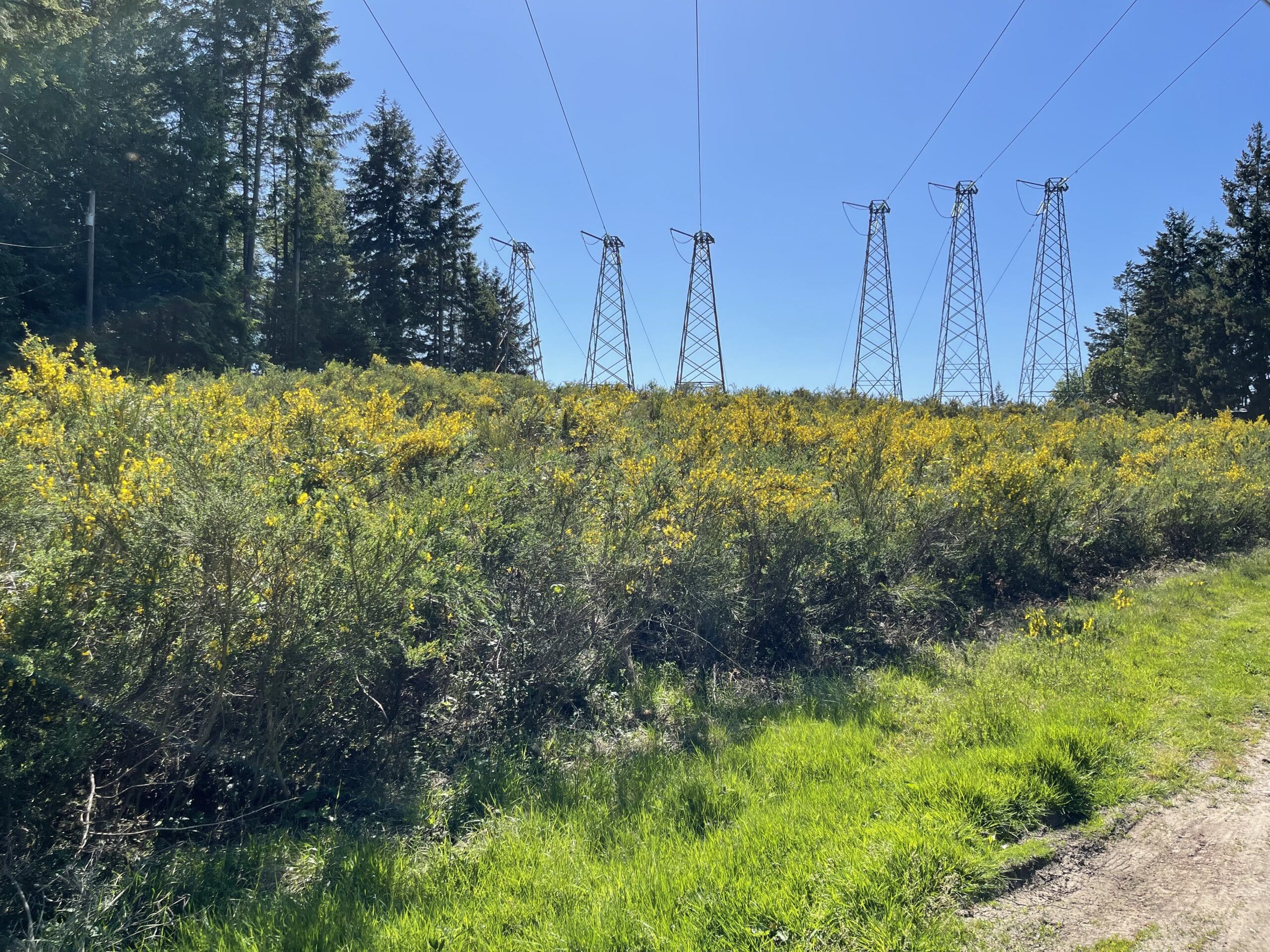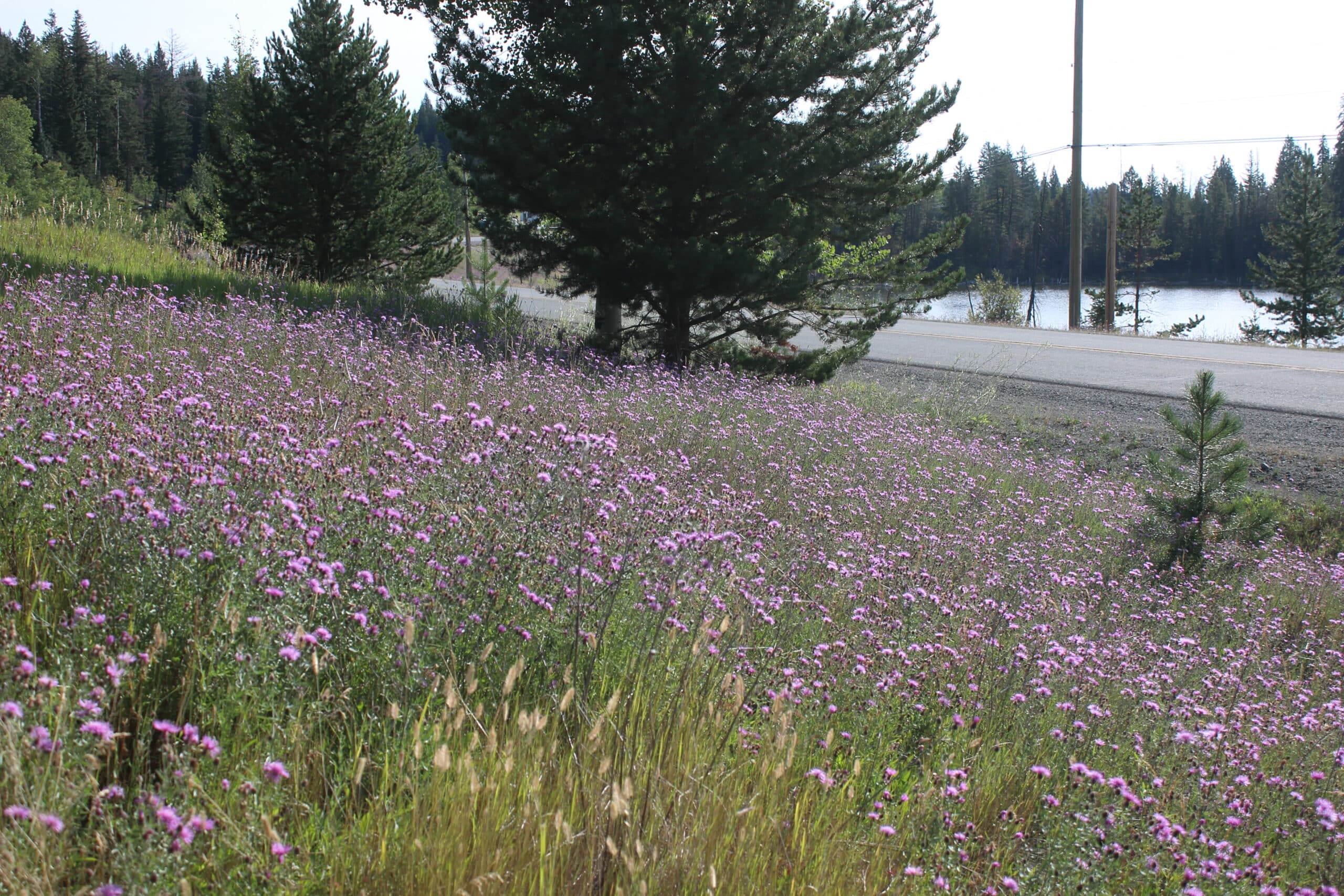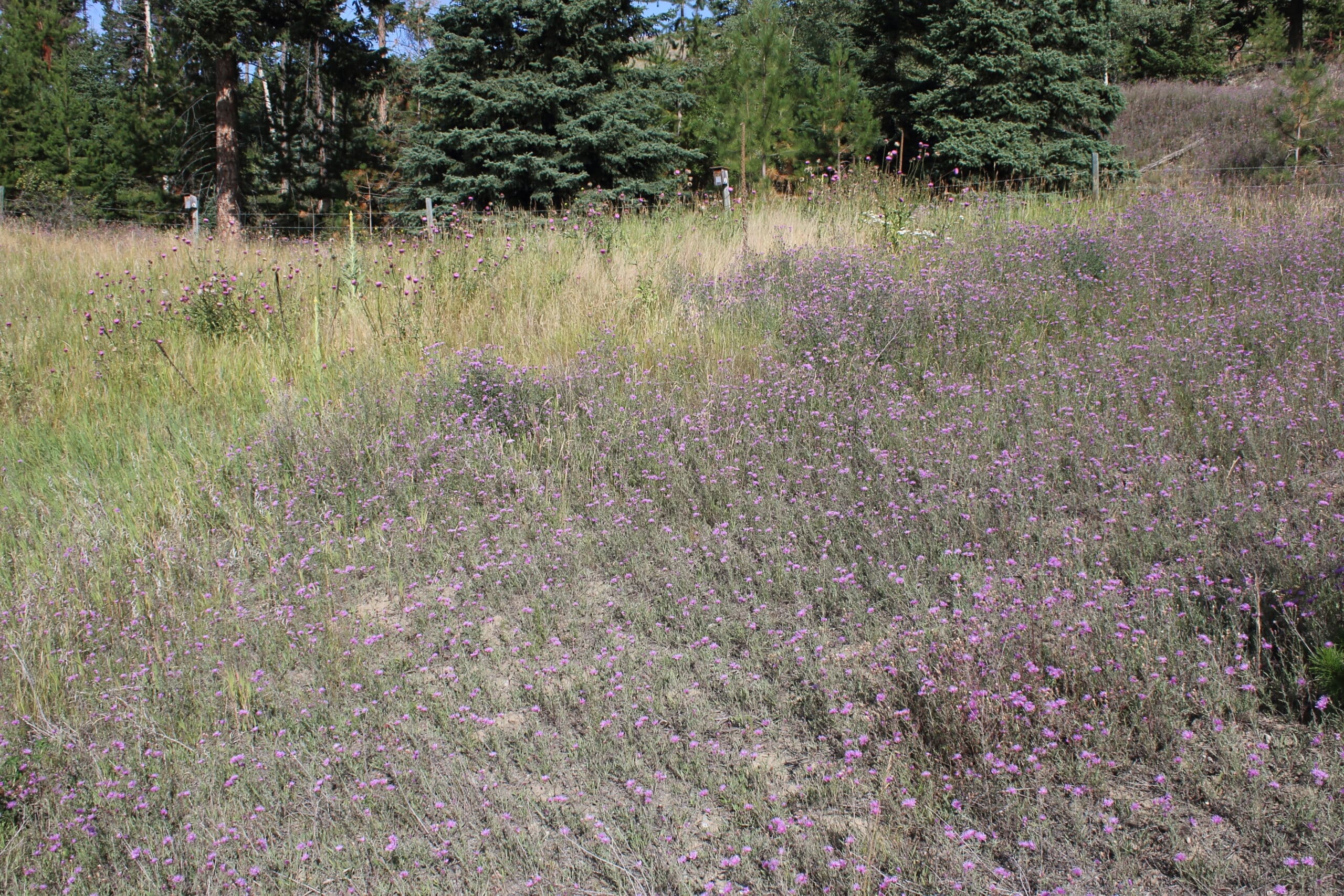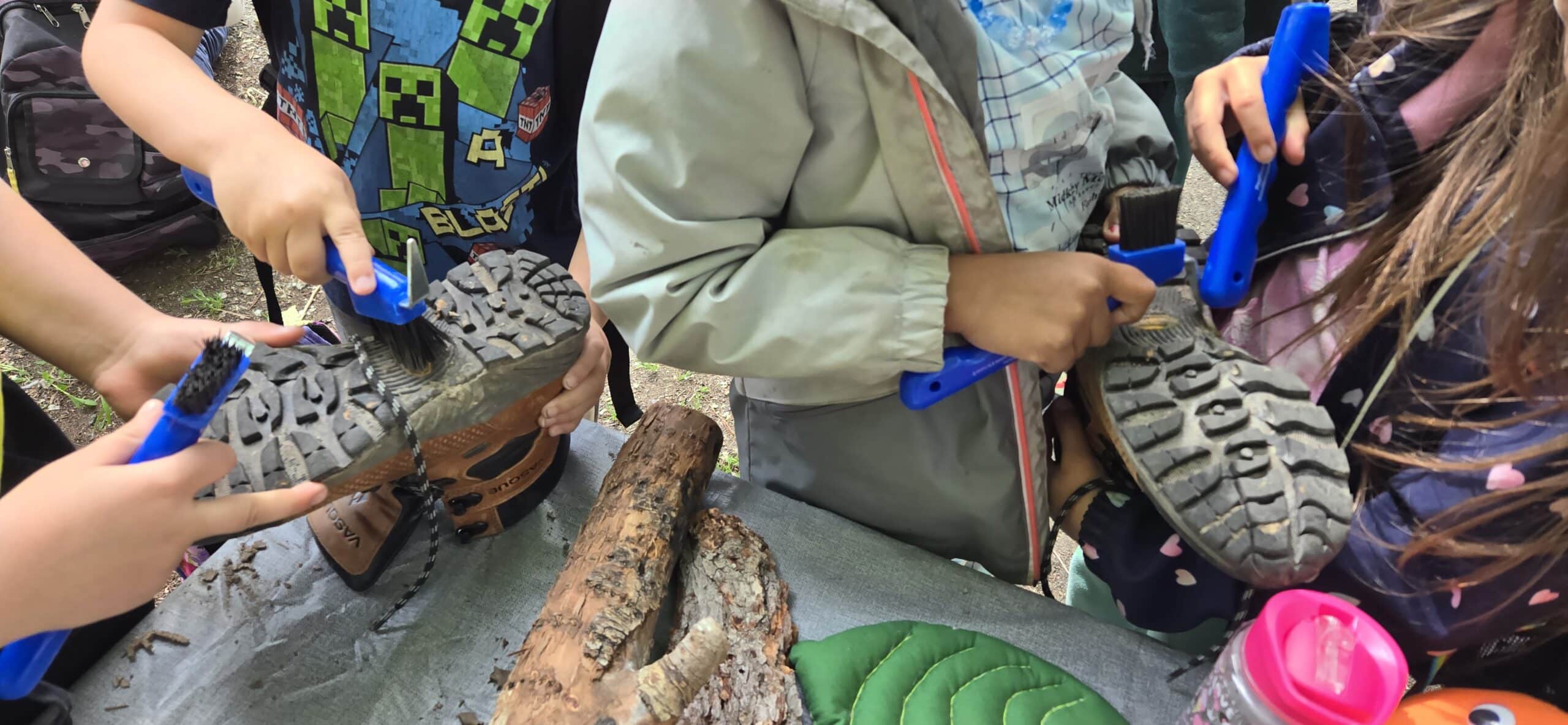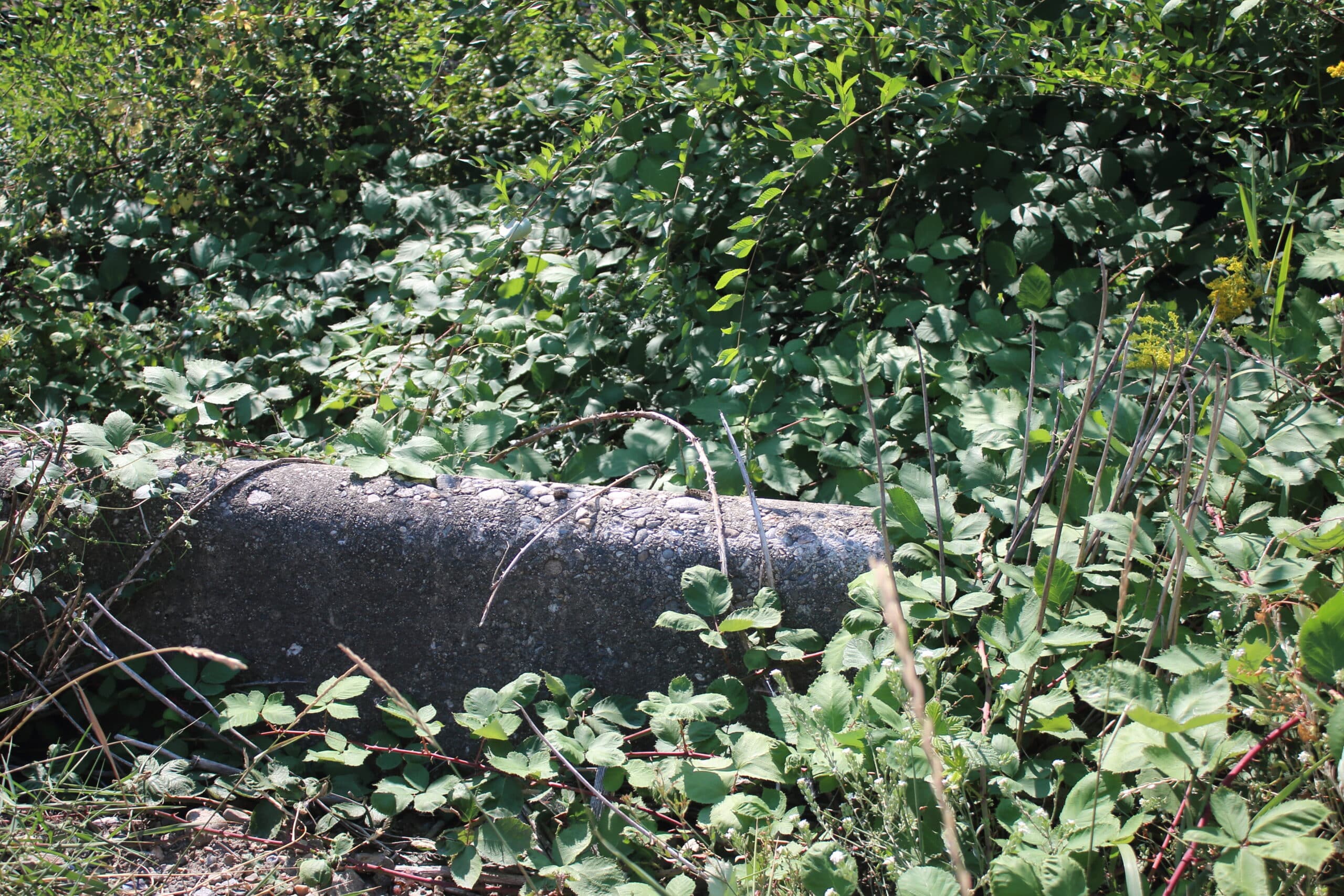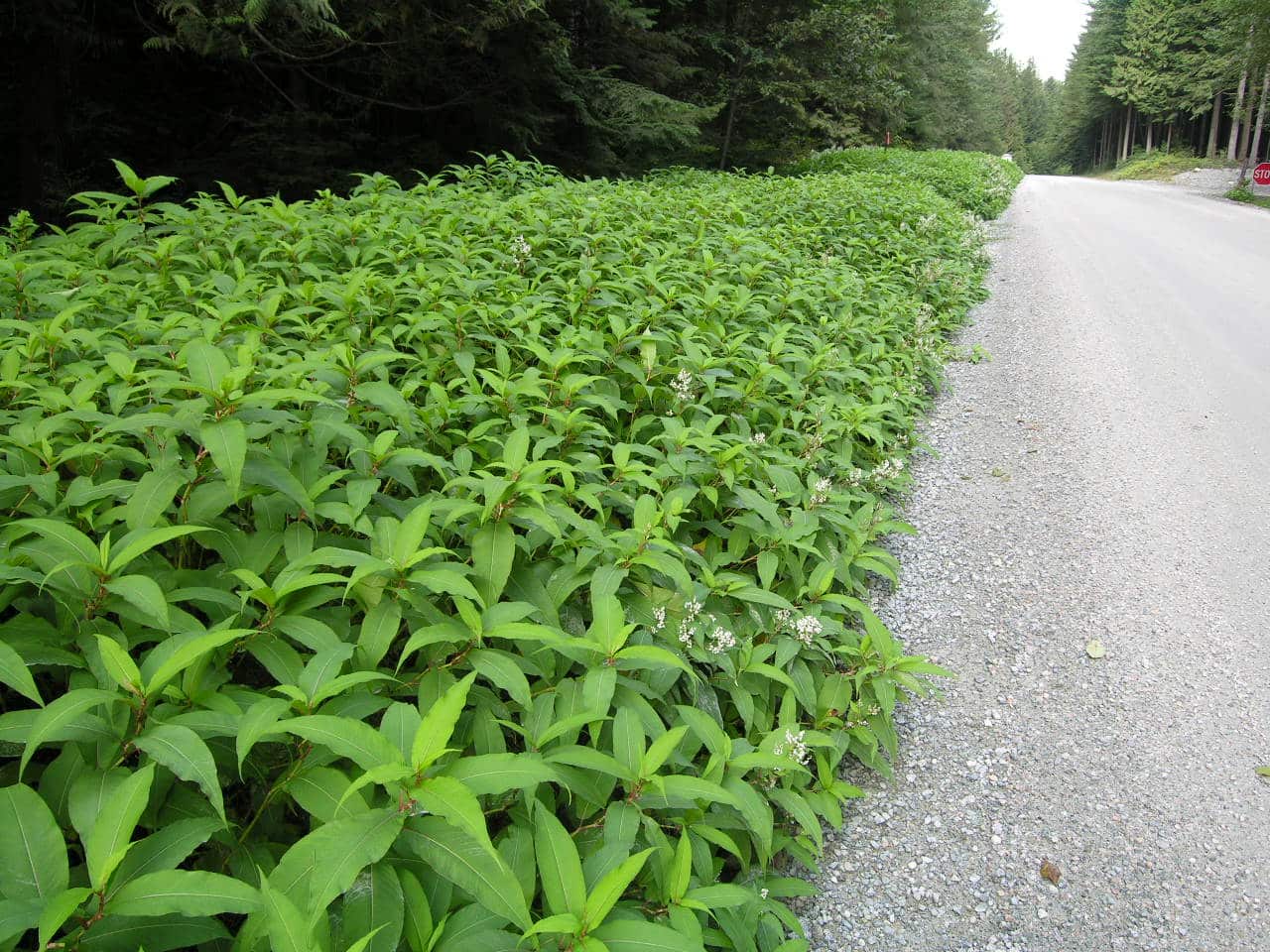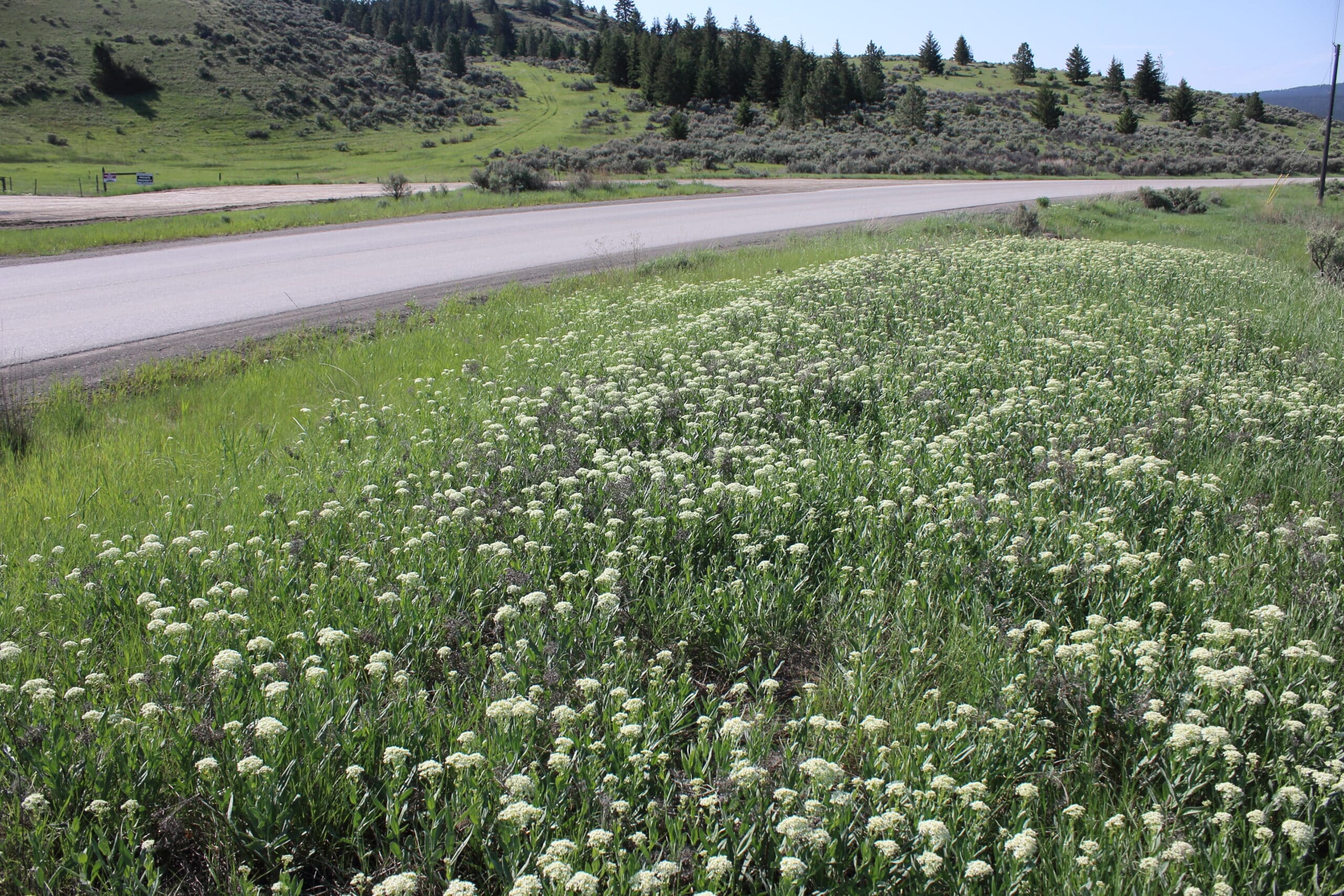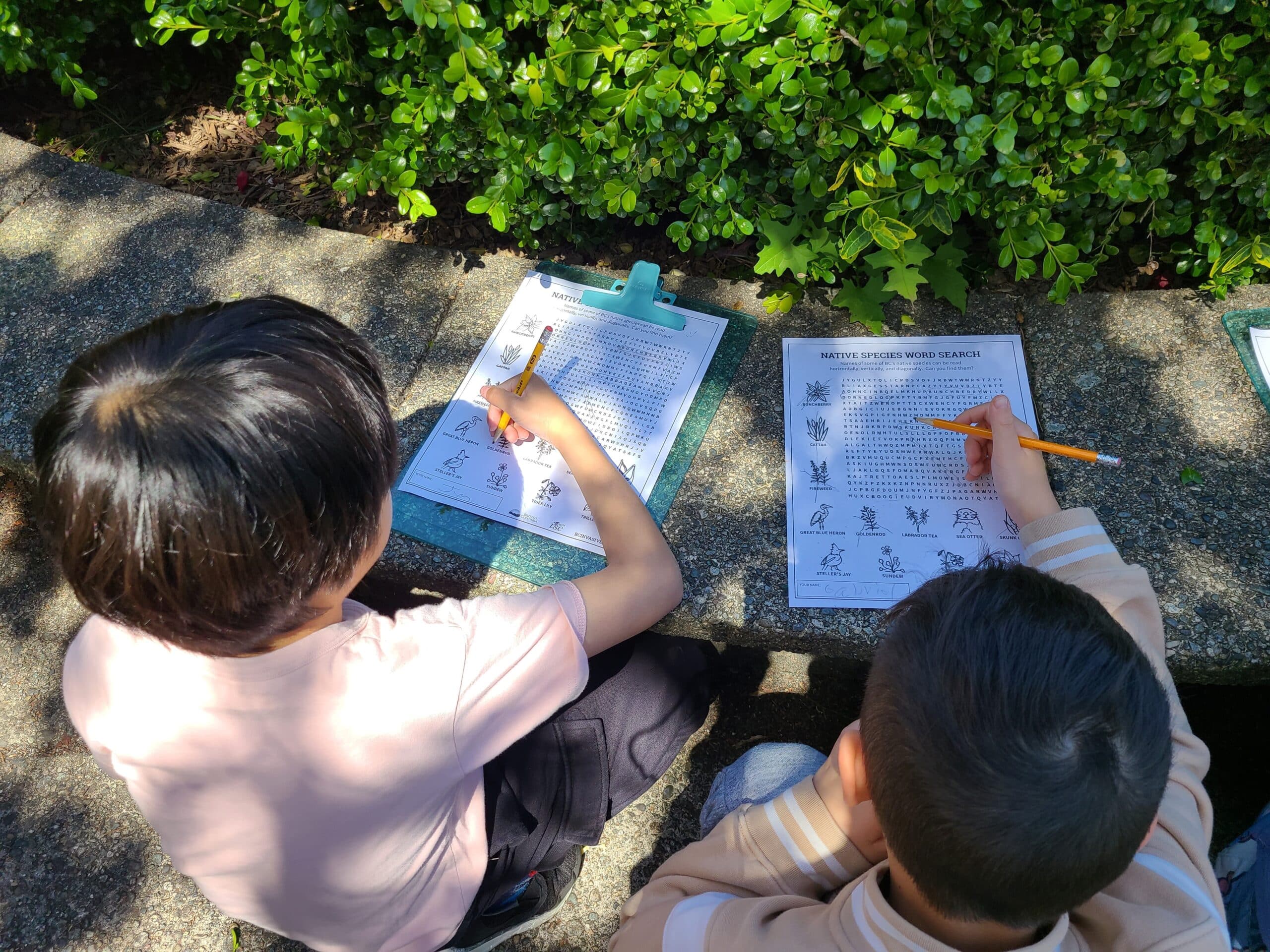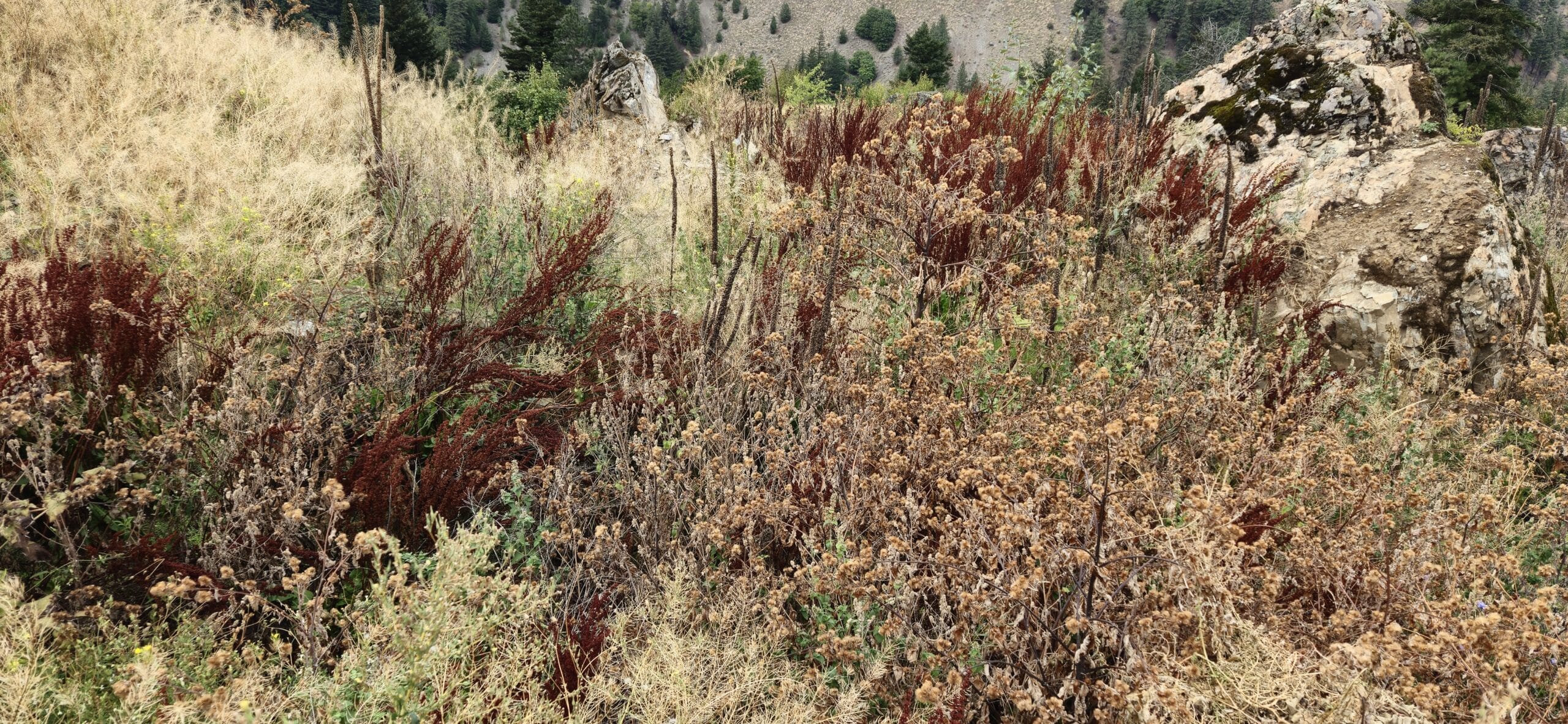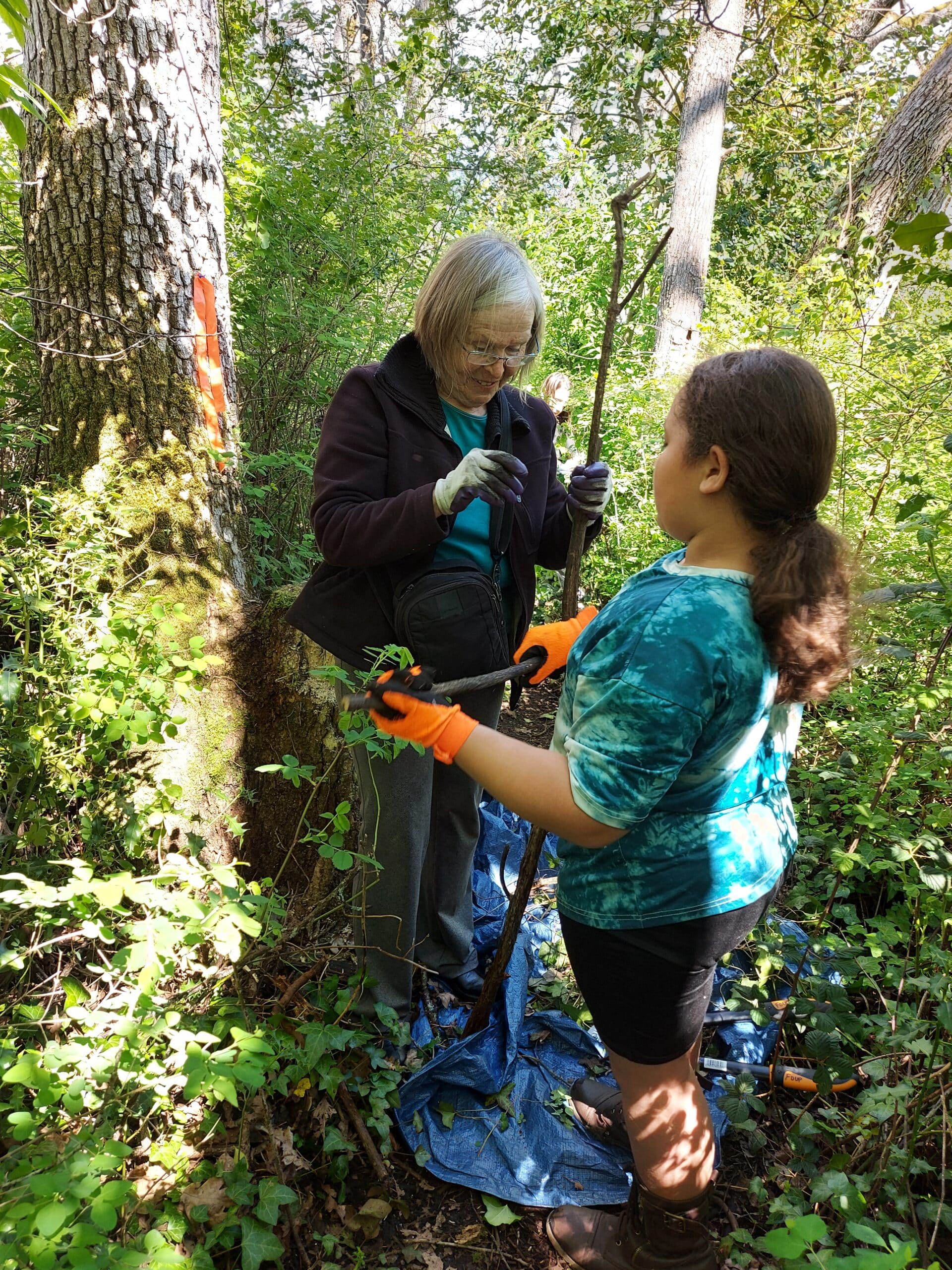By Lisa Houle | December 14, 2023
Toque. Scarf. Mitts. Boots. Invasive species?
It might not be the first thing that comes to mind with the change in seasons. But even in winter, dormant seeds from invasive plants can hitchhike on clothing, sporting gear, tires, and even our furry friends. Come spring, newly awakened seeds readily set up home in their new location.
What can we do with these invasive hitchhikers to ensure that doesn’t happen? Give them the brush off!
“In warmer areas of BC, some invasive species don’t sleep. They continue to grow throughout the winter months. That’s why we need to remain vigilant outdoors – even in winter – to ensure pieces of invasive plants and their seeds don’t get a free ride. We need to slow their spread.” said Dave Ralph, ISCBC’s Senior Manager of Operations. “Brush off your boots, your clothing, your pets, and anything else that you’ve used in one area before moving off to the next. By doing this, you’re helping to stop invasive plants from cropping up in new areas in the spring and summer.”
When headed outdoors in winter, here are a few ways to ensure invasive-free fun:
- Hiking — No matter the season, stay on marked trails and use a boot brush to remove mud, stems, and other debris.
- Cross-country skiing — Stay on groomed trails and clean off your skis, poles, and boots before leaving the area.
- Ice fishing — Hooks, lines, and augers – anything that has contact with a body of water should be thoroughly cleaned. Some invasive species, like Zebra mussels, are microscopic and can live up to 30 days outside of water in cool and humid weather!
- Snowmobiling — Brush off your machine and trailer before you leave home. Plant parts and seeds attached during summer storage could try to hitch a ride! After use, clean everything thoroughly before leaving.
- Walking your furry friend — Fur is a magnet for invasive plants and seeds. After a romp outside, brush your pet and wipe off their feet before getting in your vehicle.
- Winter warming — A warm fire on a cool day is a nice combination. Burn wood from the immediate area only. Moving firewood can spread invasive species and diseases than can destroy our forests. If you have local firewood left over, leave it. Don’t transport it.
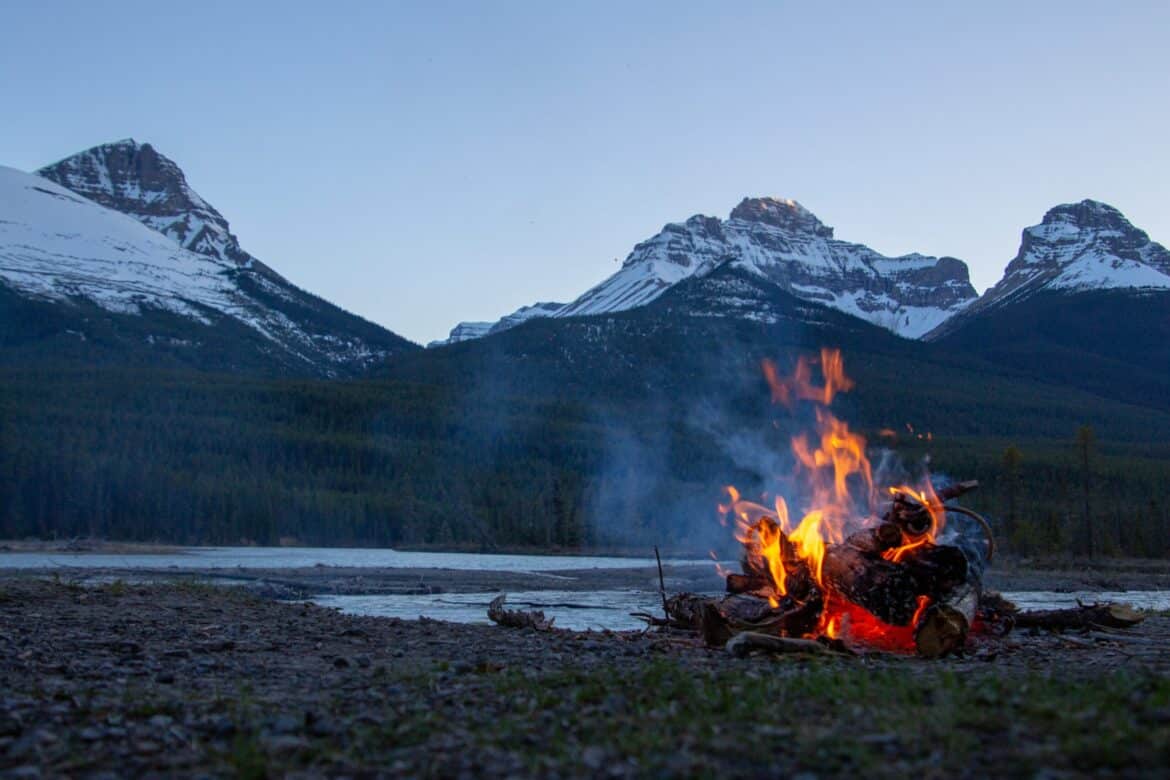
By following some best practices like these, we can each help protect BC’s biodiversity and economy. There are many ways we can all play our part to slow the spread of invasive species. One of which is to share this message with your friends and family.
“Spreading the message that invasive species continue to cause environmental damage even when we least expect it is important to ISCBC,” said Dave. “Invasive species don’t rest. So, neither do we.”
Lisa is a Communications and Outreach Coordinator at ISCBC. She values a diverse environment and connecting with others about environmental protection. In her spare time Lisa enjoys spending time at the ocean and beach combing for sea glass. You can reach Lisa at lhoule@bcinvasives.ca
Share


